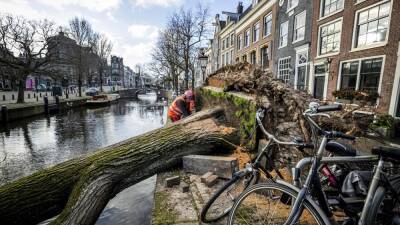It’s not quite the Black Death, but worker shortage hits UK firms hard
A deadly virus arrives from the east and sweeps through western Europe for two years. The pandemic devastates the country’s economy and drastically reduces the number of available workers. Those who survive find they are in a strong position to secure a higher price for their labour.
That was the England of the 1350s in the aftermath of the Black Death, when emergency measures were brought in to cope with labour shortages. And, while the death toll from Covid-19 is nowhere near as severe as the drop – of at least a third – in England’s population between 1348 and 1350, the outcome for today’s economy is in some ways similar.
This week’s UK labour market figures are expected to show job vacancies running hot. Vacancies have scaled record highs in recent months and fears that the end of the furlough scheme would lead to a sharp increase in unemployment have proved unfounded.
The story behind the official data is of employers struggling to attract or retain staff, and of workers seeking to make the most of it. Those who want to continue working from home part of the time or cut down to a four-day week have found employers more receptive than in the past.
“Employers are working hard to keep staff happy,” says Jon Boys, labour market economist at the Chartered Institute of Personnel and Development. “They are trying to look after their staff and do more for them. A year ago we were worried there would be not enough jobs and too many candidates for them. Now we are worried that there are too many jobs and not enough candidates.”
During the early part of the pandemic, in 2020, there were four unemployed people for every vacancy in the UK. Now the ratio is one for one. “There aren’t many candidates out there”, Boys says.
Economists
Read more on theguardian.com





















